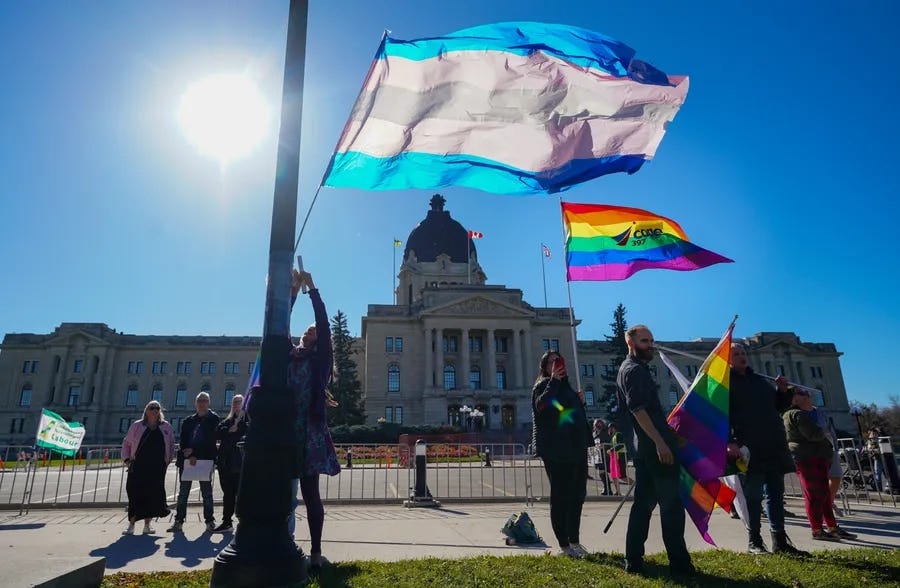Saskatchewan Stands Strong in the Face of Radical Gender Fanatics
Serving as a model for the rest of Canada

The gender dam in Canada really did start to crack when New Brunswick Premier Blaine Higgs took a stance against gender ideology in schools earlier this year. In August, Saskatchewan also started standing up to the gender zealots who have captured so many of our country’s institutions. The Saskatchewan government has faced no shortage of obstacles in its fight to protect kids from this pernicious ideology, but it has stood strong so far.
On August 22, then-Education Minister Dustin Duncan announced a new policy intended to keep parents informed about what is going on in Saskatchewan schools focused on name and pronoun changes and sex education:
Schools must seek parent/guardian permission when changing the preferred name and pronouns used by students under the age of 16 in the school;
Parents/guardians must be informed about th…



